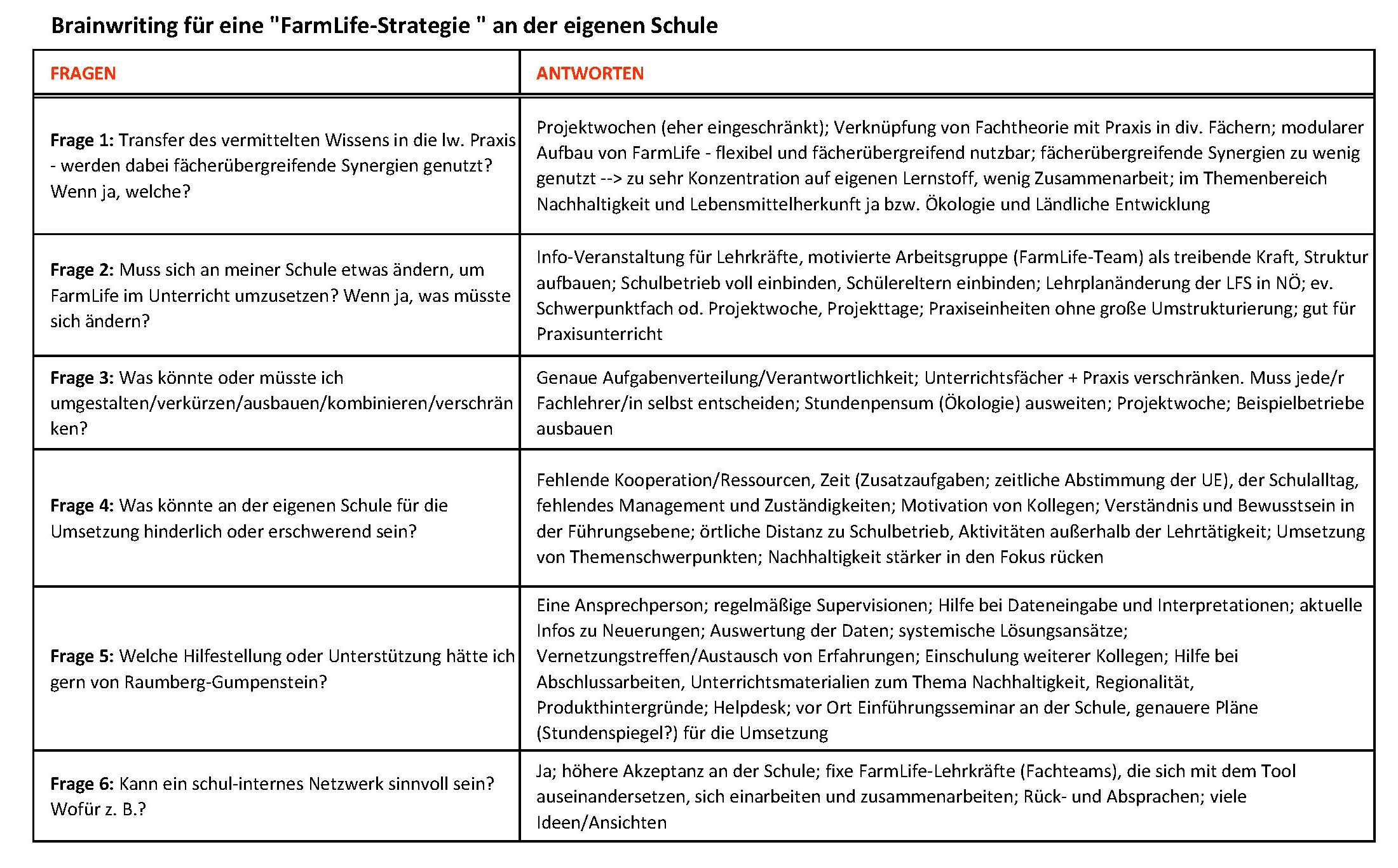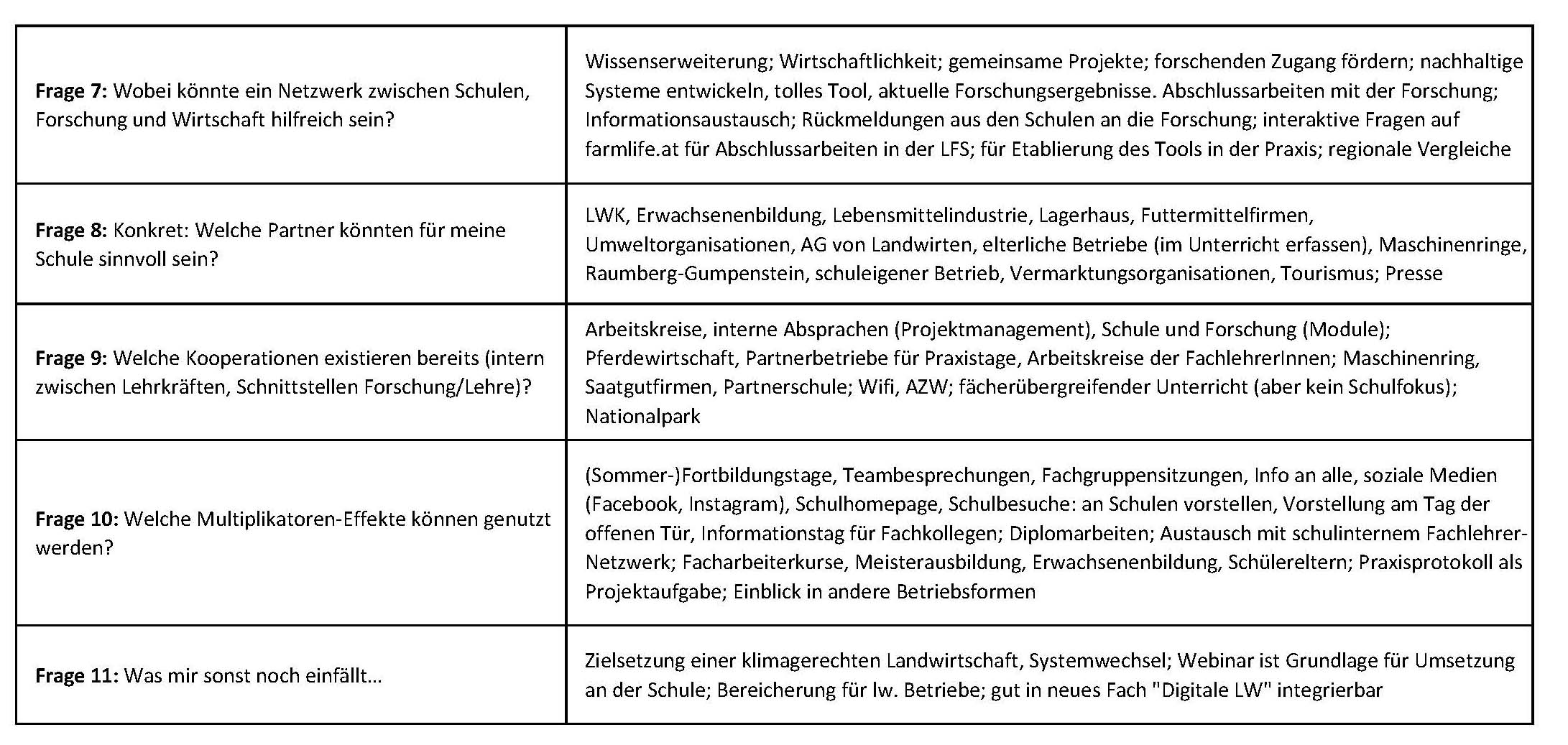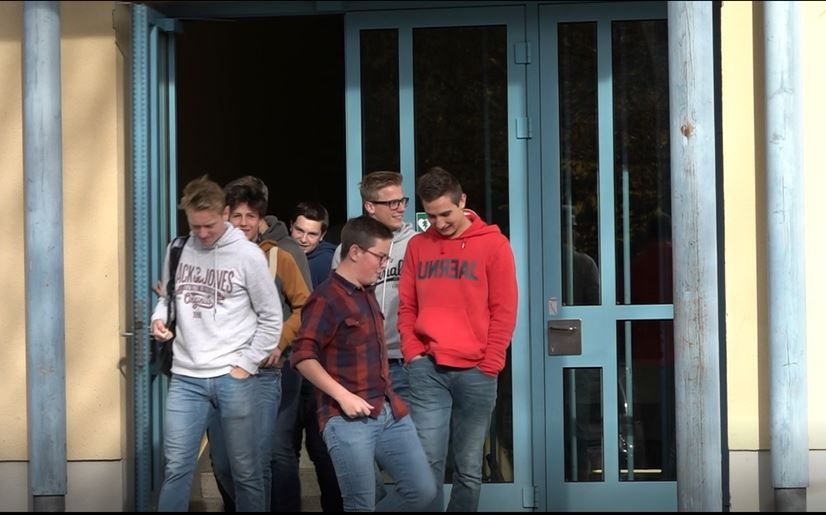This is done without any claim to completeness, because we are of course constantly dependent on feedback from teaching practice in order to be able to react accordingly. Not least due to the current crisis situation, such feedback from the teaching practice of those who got to know FarmLife two or more years ago is a rather rare commodity.
Train the Trainer seminar
The two-day Train the Trainer seminar for teachers at agricultural schools on the topic of sustainability assessment using the farm management tool FarmLife has been offered twice a year by the HBLFA Raumberg-Gumpenstein since spring 2019 and is advertised through the training plan of the University of Agricultural and Environmental Education. So far, around 40 teachers from a total of 20 LFS and H(L)BLA (in the federal states of K, Lower Austria, Upper Austria, S, ST and T) have enjoyed this training and have since acted as potential multipliers for FarmLife and the concept of “location-appropriate Agriculture” in education and in agricultural practice.
Feedback from participants
Part of the training - in addition to agricultural-technical and didactic information on the educational concept - is a small workshop towards the end of the seminar, in which the participants should think about how to specifically integrate what they have learned into their own lessons at their school. The following questions, which were asked in the course of brainwriting , resulted in the answers below, which are summarized here in key words.


When looking through the completed questionnaires, the following similar answers appear frequently:
- Form a “FarmLife team” made up of several teachers at the school for interdisciplinary work
- Interlink theory and practice more - key topics (promote research-based approach)
- Find partners for example companies that could be recorded --> involve student parents
- HBLFA Raumberg-Gumpenstein wanted as a helpdesk for data collection and evaluation, final theses, help if necessary, further training
- Exchange of information between research and education --> impact on the lw. Practice
- Training days/information days
- Inclusion in skilled worker and master craftsman training
- Regional comparisons – media use
- Climate-friendly, location-appropriate agriculture - system change
- Enrichment for schools
Conclusion
The committed answers to the questions asked, as well as the feedback from schools that have been "FarmLife active" for a long time, show that the FarmLife educational concept is of great interest and that both the online tool and the existing educational documents are viewed very positively from a technical and practical perspective become. With a view to concrete implementation at the respective school, the answers show that it is primarily about activating the management level and several teachers in order to pull together and develop a suitable concept. The HBLFA Raumberg-Gumpenstein has already been involved in the development of a school-specific concept several times and continues to offer this assistance. Assisted by the HBLFA Raumberg-Gumpenstein helpdesk, the FarmLife educational concept promotes the synergies of specialist teachers and offers support in achieving the learning goals of current curricula in LFS and HBLA. Subsequently, implementation together with students' home businesses can lead to regional results and their use for media dissemination.
team

Mag.a Elisabeth Finotti
Economics and resource management
Mag. Christian Fritz, MA
Economics and resource management
Dr. Thomas Guggenberger, MSc
Head of the Institute for Livestock Research
Dr. Markus Herndl
Soil Science and Lysimetry Department, Head of the Eco-Efficiency Research Group
Isabella Zamberger
Organic farmingSimilar projects
3708: WT FarmLifeEducationII 426
Didactic evaluation and dissemination of the FarmLife educational concept
2020 - 2023, Finotti Elisabeth






